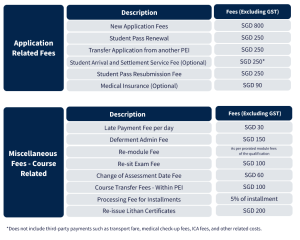Top Up SE
- Homepage
- Top Up SE
Bachelor of Science (Honours) in
Computer Science (Top Up)

12 months Part-time

Bachelor's Degree

Software Engineering

University of Roehampton, UK

Course Overview
The “BSc in Computer Science (Top Up)” program aims to equip students with critical knowledge and skills for roles in software engineering, data science, and cyber-security.
Graduates develop theoretical and practical computing skill, analytical and problem-solving abilities applicable in complex business scenarios, fostering professionalism and ethical conduct in cross-cultural teams.
The program cultivates reflective practitioners capable of identifying and analyzing system requirements, design, implement, test, and deliver solutions through blended and project-based learning.
Gain deep insight into systems architecture and its integration with computer science principles.
Acquire knowledge of mathematical, statistical, and computational modeling relevant to computer science applications.
Develop proficiency in information modeling, management, and security tools crucial for computer science.
Understand the economic and commercial aspects impacting computer science practices.
Learn effective management techniques essential for overseeing computer science projects and teams.
Personalized, skills-focused & outcome-based learning method
Learn in a competency-based curriculum aligned with Singapore's skills framework. With a 70:20:10 learning approach, you'll engage in expert-led projects for work-ready skills.

E-Learning
108 hours

Small Group Learning
8 hours

Tutorial
96 hours

Guided Learning Hours
212 hours

Self-paced Learning
988 hours
Target Audience
Candidates who have completed the following and are interested in transitioning their careers into the IT field.
-
Higher Diploma/ Advanced Diploma in IT/ Computer Science/ Software Engineering
- Higher National Diploma in Computing related from Pearson
- Polytechnic Diploma holders in relevant studies
- Matured candidates with relevant work experience for minimum 8 years
Admission Prerequisites

Minimum Age:
18 Years
Academic Qualification:
- Relevant Polytechnic Diploma in Computer Science and related subjects (equivalent to Level-4 / Year 1 and Level-5 / Year 2 of the University Course) with an entry requirement of 10 years of formal education
- Higher Diploma (Diploma and Advanced Diploma) in Computer Science and related discipline with minimum pass grades (equivalent to Level-4 / Year 1 and Level-5 / Year 2 of the University Course) with an entry requirement of 12 years of formal education
- Higher National Diploma with an overall Merit (60%) or above in a relevant subject area
- Mature candidates who are at least 30 years old and have a minimum of 8 years of relevant experience
English Proficiency:
- IELTS - 6.0 (with no elements lower than 5.5)
- C6 in English at GCE “O” level
- Letter from College/University clearly stating the Medium of Instruction of the highest qualification to be English or its equivalent.
Graduation Requirements

- Minimum 75% attendance in all sessions of each module
- Minimum pass grade in the summative assessment of each module
Module Summary
Data Visualization
Explore the principles and techniques of presenting data effectively. Starting with visualisation design and perceptual foundations, learn to create visualisations tailored to different data types. Get evaluated through user studies and apply findings in data reporting. The module integrates web development for interactive visualisations, covering both front-end and back-end processes. It builds on Data Science skills, preparing students for diverse data presentation contexts like business reporting and scientific visualisation.
What You'll Learn
- Principles of data visualisation
- Visualisation design
- Perceptual and cognitive foundations of visualisation
- Visualisation of 2D/3D scalar data
- Visualisation techniques
- Image processing and colour models
- Visualisation of tree/graph data
- Graphing and visualisation algorithms
- Visualisation of high-dimensional data
- Conducting user studies – evaluation of visualisation methods
- Statistical methods for human-computer interaction
- Combining qualitative and quantitative results
Machine Learning
Delve into creating systems that learn from data to perform tasks through pattern recognition and inference. It covers various approaches like decision trees and neural networks, focusing on system development and performance evaluation. The module also addresses machine learning's role in data mining, ethical considerations, and the impact of biased data on system outcomes. Engage with tools and algorithms in programming languages suited to each technique, preparing them for diverse automation tasks in modern industries.
What You'll Learn
- Definition of machine learning
- Inductive and statistical learning
- Classifier accuracy
- Supervised learning
- Learning neural-networks
- Unsupervised learning
- Semi-supervised learning
- Performance evaluation of machine learning
- Reinforcement learning
- Machine learning and data mining
- Ethical concerns of machine learning
- Issues with bias in data sets
Data Engineering
Develop data pipeline solutions for data-driven decisions covering parallelism, distributed data platforms, and handling large datasets through databases, data warehousing, and data lakes. The module explores data streaming, transaction processing, and cloud-based data pipelines for delivering data to scientists. Integrate data management tools with agile practices, advancing from software engineering to build scalable solutions in collaborative teams.
What You'll Learn
- Introduction to Data Engineering
- Parallelism Fundamentals
- Parallel System Architecture
- Distributed System Architecture
- Distributed Databases
- Managing Large Data Volumes
- Data Sources: Databases, Warehouses, and Lakes
- Streaming Data
- Transaction Processing
- Indexing Data
- Data Pipeline in the Cloud
- Delivering Data to Data Scientists
Cyber Security
Gain understanding for computer risks and defenses, integrating ethics, risk management, and legal aspects with technological solutions. Explores privacy's philosophical, legal, and ethical dimensions, then covers security principles like CIA, threats, and cryptography. Integrate concepts from computing and society, databases, and software engineering, emphasizing secure design and human factors. Be equipped with comprehensive skills in evaluating and securing computer systems.
What You'll Learn
- Philosophical and legal foundations of privacy
- Ethical considerations in data collection and storage
- Technology solutions for privacy
- Security policies, laws, and computer crime
- Foundational concepts of security: CIA, authentication, and trust
- Threats and attacks
- Principles of secure design
- Basics of cryptography
- Cipher types
- Human factors and security
- Usability design and security
- Security and governance
Final Year Project
Delve into a self-selected topic under academic supervision, fostering research and application of program skills. Choose from four project types: student-defined, academic-defined (research-based), industry-defined, and social enterprise. Each project culminates in a product and report, with a showcase involving external partners to conclude the module.
What You'll Learn
- Gain skills in project management, problem-solving, practical application of computer science, ethical awareness, and critical evaluation through independent project work in this course.
Certification(s)

Certification(s) Earned
- Bachelor of Science (Honors) in Computer Science awarded by University of Roehampton, UK
Pricing
Course Fee
SGD 10,000 + GST
Payment Detail
Click here for all international student related fees.
About University of Roehampton
The University of Roehampton, London, has a proud history in higher education stretching back 180 years. While still focused on its pioneering values and teaching heritage from its 19th-century collegiate roots, the University has developed a diverse curriculum that reflects London’s multicultural creative spirit. It offers a high-quality UK education experience to more than 10,000 students from 141 countries.
Known for its commitment to personalized learning and academic excellence, Roehampton offers a range of undergraduate, postgraduate, and research programs across various disciplines. With a focus on preparing students for successful careers and fulfilling lives, the university emphasizes innovative teaching methods, research-led learning, and strong community engagement. Roehampton values diversity, creativity, and critical thinking, shaping global citizens who contribute positively to society.
Learn more roehampton.ac.uk


